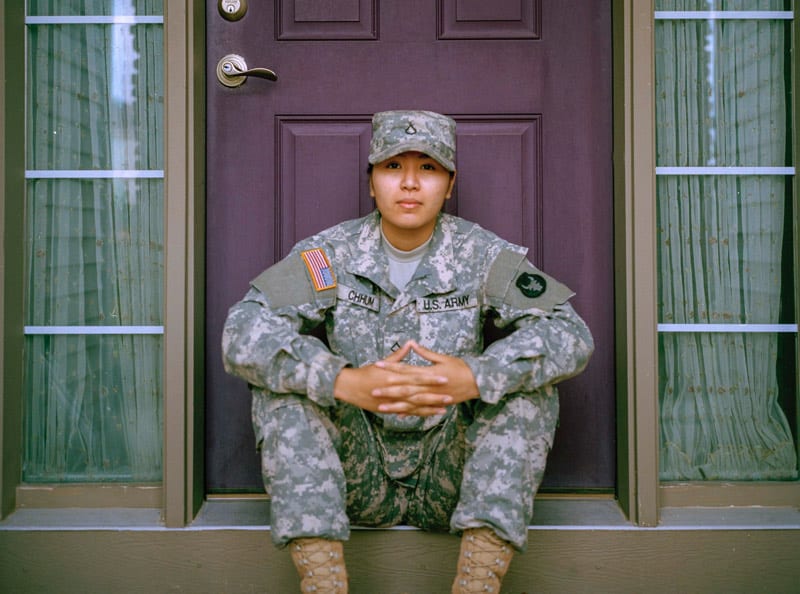Sadly, it is all too common for war veterans to develop mental health problems after serving in the military. An estimated 20% of U.S. servicemen and women deployed to Iraq or Afghanistan experience post-traumatic stress disorder (PTSD) each year.
This is just one mental health issue that can surface as a result of serving at war. Combat experiences can also lead to problems with sleeping, anger, anxiety, depression, and addiction.
To give you an idea of how serious the problem is, consider the following statistic. In 2017, veterans accounted for 13.5% of suicides in the United States, despite making up only 8% of the adult population. This trend shows no signs of slowing.
This is why it’s especially important for veterans to take their mental health seriously. If you or any veterans you know aren’t feeling themselves, it’s best to tackle the problem as soon as possible.
This article offers eight things you can do about this problem.
How Veterans Can Improve Their Mental Health: Getting Support
First, we’ll look at the ways that veterans can seek support from other people.
#1. Official Veteran Helplines
There are several official health services where U.S. war veterans can seek help, including help for mental health problems.
The Veterans Crisis Line offers free 24/7 support by phone (1-800-273-8255), text message (838255), or online chat. Qualified VA responders will be waiting to help you, no matter how insignificant you might think the problem is.
#2. Cognitive Behavioral Therapy
Cognitive behavioral therapy (CBT) has been recognized as a “safe and effective intervention” for PTSD.
This form of therapy helps people recognize and change unhelpful negative thought patterns. It is used to treat mental health problems such as depression, anxiety, addiction, and PTSD.
Any qualified therapist – and most life coaches – will be equipped to identify the source of a veteran’s mental health problems and help them establish healthier thought patterns.
#3. Support from Friends and Family
Although they may not be officially qualified to treat mental health problems, there’s no question that support and understanding from loved ones will aid your healing process.
Avoid the temptation to bottle things up. Make sure to spend time with those closest to you. Yes, speak with them about how you’re feeling – but also make time to have fun and enjoy life, too.
Of course, it’s okay to let loved ones know that there are some experiences you don’t want to speak about straight away. If you feel a bit out of sync with your family and friends, know that this is normal. It takes time to reconnect.
How Veterans Can Improve Their Mental Health: Solo Activities
Our list continues with activities that veterans can do on their own to improve their mental health.
#4. Meditation
Meditation is the practice of taking your mind away from your thoughts and focusing on your body. This helps you be in the present moment during your everyday life, rather than stuck dealing with anxious thoughts about the past or future.
You learn to separate yourself from your thoughts – and this can prove very helpful for anyone with PTSD, anxiety, or depression. Veterans with PTSD who practice meditation will often feel as if they can observe flashbacks of the traumatic experience without ‘feeling’ it. They’ve trained themselves not to be as emotionally affected by their thoughts.
#5. Yoga and Muscle Relaxation Activities.
Many find yoga to be a meditative practice that encourages mindfulness, but that’s not the only reason it’s recommended for veterans affected by stress, anxiety, and other mental health problems.
It also helps to soothe the physical symptoms of stress from your body. Your muscles will tend to tense up when you are stressed, and this can lead to greater pain and stiffness in the long-term.
Yoga helps to stretch your muscles out and release this tension. It’s one of the more popular exercise routines among older Americans, partly for this reason. Other forms of breathing and muscle relaxation exercises, such as the ancient Chinese healing technique qigong, have a similar impact.
#6. Distraction
Veterans with PTSD and anxiety can use distraction techniques to take their minds off their negative thoughts.
The best distraction activities are those you can do straight away, whenever anxious thoughts strike. They could be as simple as counting backward, doodling, cleaning, or solving a crossword. This technique can help you lessen the intensity of your negative emotions, making them easier to manage.
Another good distraction technique is playing video games. There are many common misconceptions about video games. One is that they trigger us to be more violent, but that varies from person to person and the type of game you’re playing. Choosing more relaxing types of games can actually help us to de-stress.
#7. Journaling
Journaling can help people cope with stress, anxiety, depressive thoughts, and PTSD with greater ease. It reduces symptoms of unhelpful thoughts, such as tension or anger.
Journaling can also help Veterans with PTSD find meaning and appreciate the positive aspects of their past experiences. This is called post-traumatic growth.
If you are working with a therapist or life coach, he or she will often recommend journaling your thoughts in your time between sessions. Allowing your therapist or other counselors to view your journal notes gives them further insight into your thought patterns, allowing them to help you towards a healthier mindset.
#8. Self-Monitoring and Behavioral Activation
Veterans with mental health conditions often find themselves in a state of apathy. They may lack the desire and energy to take actions that will make them happier and improve their lives. What’s more, they may feel powerless to fix this state of mind.
This lack of action tends to achieve nothing but make them feel even worse. It’s a downward spiral. You can stop this pattern by learning to become self-aware. Recognize what triggers negative emotions or a lack of motivation in you, then get in the habit of taking proactive action to override this.
Engage in positive and rewarding activities and observe what it does to your state of mind. This will help you link positive actions to a positive mood.
Avoiding Alcohol and Drugs
It is common for veterans to turn to alcohol or drugs to deal with their mental health problems.
Yes, this can serve as a quick and easy distraction from negative thoughts, but it’s a horrible long-term solution. Rather than facing these problems head-on and dealing with them, you’re papering over the cracks.
The mental health issues will still be there when the high wears off. If you keep turning to alcohol or drugs to fix the problem, you’ll eventually need bigger doses to numb the pain. This is how many addictions form.
The suggestions above might not seem as quick and easy as turning to the bottle, but they’re far more effective in the long-term.
A Final Word
There’s a reason why I started this article by mentioning the disturbing prevalence of mental health problems among veterans.
That reason is that it’s important not to be ashamed.
As sad as it is to say, PTSD and depression are common occurrences for veterans. Seeking help is not a sign of weakness. On the contrary, it is the strong thing to do. You’ve got this!
If you or someone you know experiences mental health issues, it is important to seek help from a qualified professional. Our Resource Specialist can help you find expert mental health resources to recover in your community. Contact us now for more information on this free service to our users.

Photo by Jessica Radanavong on Unsplash
The opinions and views expressed in any guest blog post do not necessarily reflect those of www.rtor.org or its sponsor, Laurel House, Inc. The author and www.rtor.org have no affiliations with any products or services mentioned in the article or linked to therein. Guest Authors may have affiliations to products mentioned or linked to in their author bios only.





